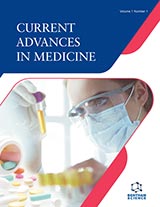Abstract
Computational approaches efficiently design the drugs to prevent diseases for which no drug is available. These techniques are also used for the development of new drugs. It involves using a variety of computer software for drug modeling and simulation, hence usually known as computer-aided drug designing (CADD). The computational tools provide crucial drug designing in a short period. These techniques are time and cost-effective as compared to conventional drug development methods. Computational methods can effectively model the suitable drug candidate by optimizing ligand-target interactions and observing the deep insight of cellular processes by its powerful tools. Several studies have applied these modern computational techniques to find out the possible therapy against the pandemic disease of COVID-19. The critical proteins of COVID-19, including 3C-like protease, papainlike protease, and RNA polymerase, are targeted to model the effective drug. CADD approaches suggest anti-viral drugs, anti-coagulant, anti-HIV drugs, and anti-fungal drugs to have little effect against COVID-19. This chapter aims to overview the different CADD approaches to design the possible drug for the treatment of COVID- 19.
Keywords: CADD, Computational methods, COVID-19, Treatment.






















